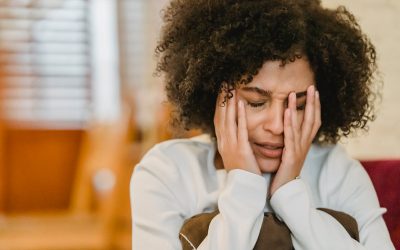Are you struggling with hair loss and its impact on your confidence and quality of life? If so, you’re not alone. Alopecia is a condition that affects millions of people worldwide. But the good news is that there are effective ways to manage hair loss and improve your well-being.
Whether you’re dealing with alopecia areata, androgenetic alopecia, or another type of hair loss, know that you can overcome your condition and regain your confidence. In this article, we’ll share expert advice from our trichologist, one of the most trusted in Ireland, on coping with alopecia.
What Is Alopecia?
Alopecia is the medical term for hair loss. It is a condition that affects the scalp, face, and other areas of the body where hair grows. There are many types of hair loss, each with its own unique characteristics and causes.
The most common type of hair loss is androgenetic alopecia, also known as male pattern baldness or female pattern hair loss. This type of alopecia is caused by a genetic predisposition to sensitivity to dihydrotestosterone (DHT), a hormone that shrinks hair follicles over time. Androgenetic alopecia typically begins with a receding hairline or thinning at the crown of the head and gradually progresses over time.
Another type is alopecia areata, which causes patchy hair loss anywhere on the body. It is an autoimmune disorder that occurs when the body’s immune system attacks hair follicles, resulting in hair loss. This type of hair loss can be unpredictable, with hair growing back and falling out in different areas over time.
Telogen effluvium is another type of alopecia caused by a disruption to the hair growth cycle. This can be due to factors such as stress, hormonal changes, medications, or a nutritional deficiency. Telogen effluvium typically results in excessive hair shedding and can last several months.
Other types of hair loss include traction alopecia (caused by tight hairstyles or hair pulling), anagen effluvium (caused by chemotherapy or radiation), and scarring alopecia (caused by scarring of the hair follicles).
What Causes Alopecia?
Alopecia can have multiple causes, depending on the type and severity of hair loss. Some of the most common factors that contribute to alopecia include:
Genetics
Hereditary hair loss is the most prevalent cause, affecting up to 80% of men and women over 50. It is believed to be brought about by the interaction of genetic, hormonal, and environmental factors that affect the hair growth cycle and follicle size.
Stress
Emotional or physical stress can trigger a type of alopecia called telogen effluvium, which results in diffuse shedding of hair 2-3 months after the stressful event. This type of alopecia is usually reversible once the stressor is removed.
Hormonal Changes
Hormonal fluctuations, such as those that occur during pregnancy, menopause, or thyroid disorders, can cause temporary or permanent hair loss.
Medications
Some drugs, such as chemotherapy, immunosuppressants, or birth control pills, can cause hair loss as a side effect.
Autoimmune Diseases
Alopecia areata is a type of alopecia that occurs when the immune system attacks the hair follicles, causing round bald patches on the scalp or other areas of the body.
Others
Nutritional deficiencies, scalp infections, physical trauma, or exposure to toxins can also contribute to alopecia.
How Alopecia Affects People
Hair loss can have significant physical and emotional effects on people who experience it, regardless of age, gender, or cultural background.
Physically, alopecia can affect the scalp’s protection from the sun, cold, or injury. It can also alter the person’s appearance, which many often struggle to accept.
Emotionally, alopecia can cause low self-esteem, confidence, and body image, leading to social isolation, relationship difficulties, and career setbacks. It can even result in anxiety and depression.
How to Cope With Alopecia
Coping with hair loss can be challenging, but there are ways to manage the condition and improve your quality of life.
Here are some expert tips from our trusted trichologist on how you can effectively cope with hair loss:
See a Trusted Hair and Scalp Specialist
If you’re struggling with hair loss or alopecia, it’s important to seek the advice of a qualified hair and scalp specialist. A trichologist can help identify the underlying causes of your hair loss and develop a personalised treatment plan to help you manage your symptoms and promote healthy hair growth.
Make sure to research and choose a reputable and experienced specialist who can provide you with the support and guidance you need.
Only Go for Tried and Tested Hair Loss Treatments
There are numerous products out there that claim to treat hair loss. Don’t waste your time and money on them! Go for products and procedures that are proven to treat alopecia.
Topical and oral medications, laser hair growth therapy, and hair transplant – these are some of the effective hair loss treatments that trichologists and dermatologists in Ireland recommend.
Just keep in mind, though, that each person responds differently to these treatments. This is why it is essential to work with a qualified trichologist to develop a personalised treatment plan that takes into account your individual needs and the underlying cause of your hair loss.
Don’t Wait Too Long to See a Specialist
Hair loss can be a progressive condition. This means that the longer you wait to seek help, the more difficult it can be to manage it. If you’re experiencing receding hair line or thinning at the crown, don’t delay consulting a trichologist or dermatologist.
Early intervention can often lead to better outcomes and may help prevent further hair loss. With the right treatment plan, it’s possible to manage and even reverse the effects of alopecia.
Protect Your Hair From Damage
Hair that is already thinning or falling out can be more vulnerable to damage from heat styling, harsh chemicals, and tight hairstyles. Be gentle with your hair and avoid practices that can cause further damage.
Practice Stress-Reducing Techniques
Stress can exacerbate hair loss. So, finding ways to manage or minimise stress can be helpful in preventing your alopecia from getting worse. Meditation, yoga, deep breathing, and other relaxation techniques can effectively reduce stress and promote overall well-being.
Get Enough Sleep
Adequate sleep is vital for overall health. It can also promote healthy hair growth. Try to get 8 hours of sleep each night and establish a regular sleep routine.
Eat a Balanced Diet
Good nutrition is essential for healthy hair growth. Make sure you’re getting enough protein, iron, and other essential nutrients in your diet. Work with a nutritionist to develop a nutrition plan tailored to your needs.
Consider Joining a Alopecia Support Group
Coping with alopecia can be challenging, but connecting with others who are going through similar experiences can be helpful. Join a support group or seek out online forums where you can connect with others who understand what you’re going through.
Be Patient
Treating hair loss (including growing back a full head of hair) can be a slow process. In addition, some treatments may take several months to produce visible results. So, being patient and consistent with your treatment plan is important.
Keep in mind that everyone’s hair loss journey is unique. It may take some trial and error to find the right treatment plan for you. By staying committed to your plan and trusting the process, you can increase your chances of achieving healthy hair growth.
In conclusion, alopecia can be a challenging and sometimes frustrating condition to manage. But it’s important to remember that you’re not alone. There are resources and support available to help you.
Seeking advice from a trusted trichologist and connecting with others who are going through the same experience can help you better navigate this condition and find the right treatment options.
Self-care, stress management, and coping strategies are also crucial in managing the emotional effects of hair loss. Remember to be kind to yourself and take things one step at a time. With the right support and guidance, you can learn to cope with alopecia and live a fulfilling life.
Are you struggling with male pattern baldness, female pattern hair loss, telogen effluvium or other types of alopecia? Get the expert advice and support you need at the Universal Hair and Scalp Clinic. Our team of hair loss specialists can help understand your individual needs and develop a customised plan to manage your hair loss. Call us today on +353 (0)1 679 3618 or click here to book a consultation!
Royalty-free image supplied from Pexels as part of the SEO service from 3R



